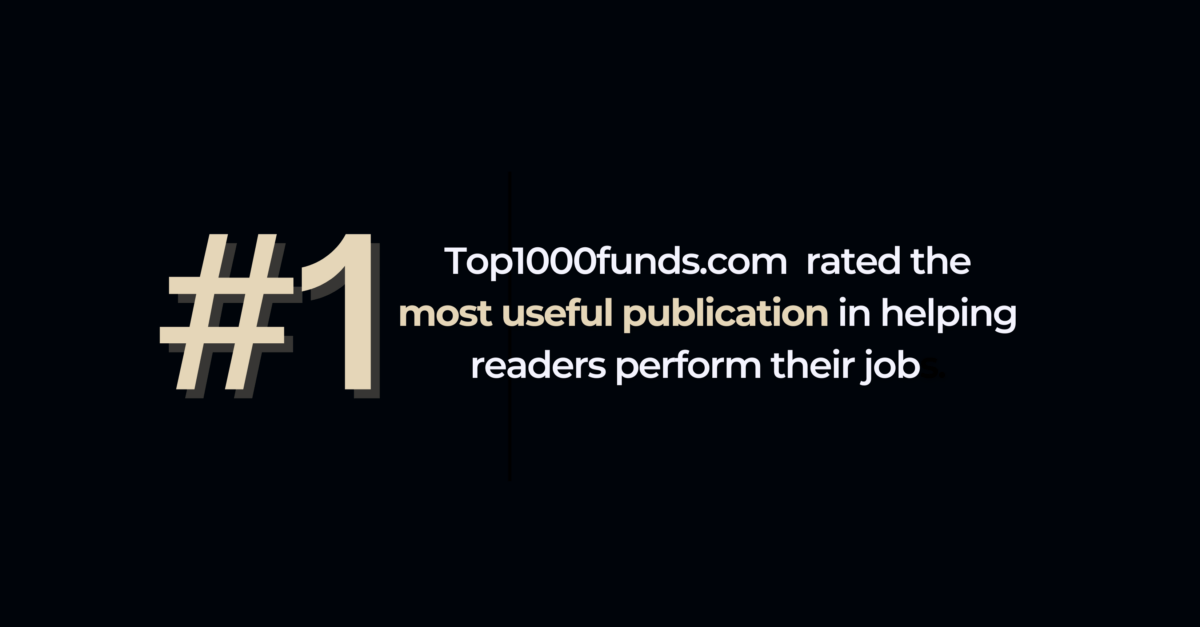Investors with a large proportion of educated female members have extra reason to take socially responsible investing seriously, but can possibly relax about poor returns. That is a fascinating finding of Rachel Pownall, an associate professor of Tilburg University, who has published groundbreaking work on the nuances of responsible investing.
Pownall, together with Arian Borgers another Tilburg University researcher, polled over 1,000 Dutch households, in order to gain their views on the topic of responsible investing and its values.
They found that close to 45 per cent of respondents were willing to give up a ‘substantial’ amount of pension income in exchange for a more responsible investing approach – a result that seems to challenge the return focus of investors the world over.
“It seems that educated females, and more females in general are more happy to prioritise responsible investing over maximum returns, no matter their own income,” Pownall says in summarising the key demographic results of her research.
While her research showed widespread support for responsible investing from pension fund members, this trend was intriguingly muddied.
Some 17.5 per cent of respondents to the survey preferred a non-responsible equity portfolio no matter the returns it delivered under a scenario as part of the survey. Pownall and Borgers believe this can be explained by poor financial understanding, but the implication seems to be that investors should strive to gauge their members’ potentially complex preferences on responsible investing.
Into the thick of responsible investing
Pownall had already observed before doing the research that within the somewhat fuzzy and all-embracing concept of sustainable investing there were clear opinions indicating what Dutch pension fund members expected of investors.
For instance, there has been clear pressure on Dutch pension funds to exclude investments related to the production of cluster bombs, a development “that really ignited the whole responsible investing debate in the Netherlands” says Pownall.
On the other hand, when a couple of large Dutch funds made big charity donations following the 2004 Indian Ocean tsunami, some criticism resulted of this overstepping their responsible investment mission.
These developments in the Netherlands have to some extent been mirrored elsewhere, but another key result of Pownall’s research is that social norms informing responsible investing actually seem markedly different in different societies.
“We have found that Europeans are much more driven by social issues when it comes to thinking about responsible investing and are less worried about the likes of gambling and alcohol,” explains Pownall.
This should naturally serve to steer any investors away from simply emulating a responsible investment approach of their international peers. “I think investors really need to find out what their members want when it comes to responsible investing,” she says.
Other preferences shown by the research are that smokers and drinkers are (perhaps inevitably) less concerned on the whole about their pension savings being invested in tobacco or alcohol companies. Good employee relations were meanwhile rated as the quality that the Dutch value most highly in responsible investing.
Responsible menu
“We also wanted to see if individuals are responsible and able enough to express their responsible investing preferences or should there be a top-down approach,” explains Pownall.
The results of some basic investing scenarios conducted as part of the survey indicated widespread misunderstanding – if not financial illiteracy – something that Pownall says is all too common when the public are tasked with hypothetical investment games.
Pownall reckons investors have a role in empowering individuals by offering responsible investing options whenever possible. She sees much more potential for that in the burgeoning defined contribution plans of the UK and US than the big benefit-promising funds of the Netherlands.
“Lots of people want to have a say in what they invest in, and a menu of investment choices would allow those how want to make these decisions to act,” argues Pownall. Large state-connected funds are probably best positioned to set a positive example in this, reckons Pownall.
Pownall feels responsible investing could also come under a wider financial education drive by governments.
A mindset shift from investors might also be needed, Pownall reckons, with the relative lack of importance that her research suggests members place on returns challenging conventional performance horizons. “It’s always a worry that pension funds could be part of the same game when it comes to the quarterly returns that investment managers obsess about, whereas there is a need to focus on the long run,” she says.
While her research shows how decisions are probably best made with the particular environment of the fund in mind, Pownall feels that the Netherlands will continue to make a hefty contribution in pushing the responsible investment debate further. Strong media attention and a questioning public are particularly vital components in the helping the country to the forefront of the responsible investing movement, she says.
You can read Arian Borgers and Rachel Pownall’s paper, ‘Social Norms of Pension Funds’ here



